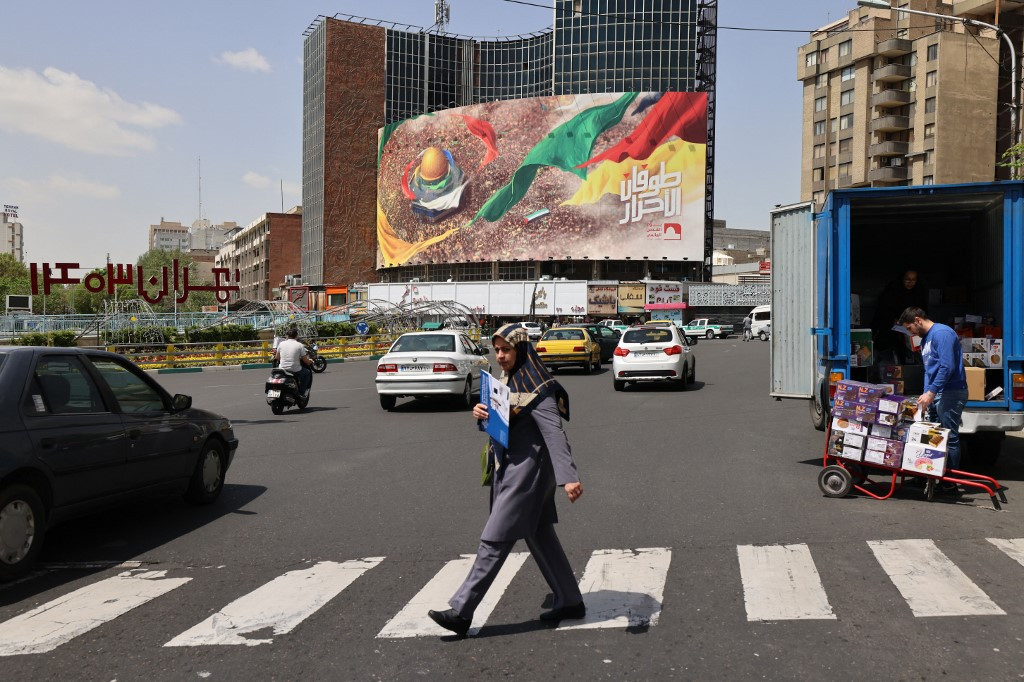Popular Reads
Top Results
Can't find what you're looking for?
View all search resultsPopular Reads
Top Results
Can't find what you're looking for?
View all search resultsNew governments mark a new chapter in Iran-Indonesia relations
The positions and actions of the Islamic Republic of Iran and the Republic of Indonesia on Palestine are deeply rooted not only in Islamic principles but also in the constitutional mandates of both nations.
Change text size
Gift Premium Articles
to Anyone
T
his year marks the auspicious occasion of the 75th anniversary of establishing diplomatic relations between the Islamic Republic of Iran and the Republic of Indonesia, a milestone that coincides with the early tenure of the newly inaugurated administrations in both nations.
Shared cultural heritage rooted in Asian traditions, a predominantly Muslim populace, non-alignment with the Eastern and Western blocs, sovereign and independent foreign policies, advocacy for decolonization, and, most significantly, unwavering support for the oppressed Palestinian people, are salient factors that have long forged and fortified the bonds between the peoples of Iran and Indonesia.
These ties, which have withstood the test of time, have not been weakened by the imposition of unjust and unilateral sanctions by the United States and its allies. On the contrary, these adversities have bolstered the resolve of both nations to diversify and deepen their relations, particularly in light of Iran’s strides toward self-sufficiency and progress in fields such as medicine, nanotechnology, biotechnology, nuclear science, aerospace and beyond.
The historic visit of the late president of Iran, Seyyed Ebrahim Raisi, to Indonesia on May 23-24, 2023, amid peak pressures from US sanctions, and the subsequent signing of 11 memoranda of understanding in political, economic, healthcare, scientific, technological and cultural arenas between Tehran and Jakarta, attests to this shared determination.
The enhancement of relations with Eastern and Southeast Asian nations remains a priority for the diplomatic agenda of the newly established administration of President Masoud Pezeshkian. In this context, deepening ties with independent and sovereign nations such as Indonesia is poised to be a cornerstone of the 14th administration’s foreign policy.
The execution of the agreements concluded during the late president’s visit to Jakarta in May 2023 will continue to be a focal point in the bilateral relations between Iran and Indonesia.
Additionally, the anticipated establishment of direct flights between Iran and Indonesia in the near future, coupled with enhanced people-to-people exchanges, will undoubtedly contribute to a deeper understanding and awareness between the two nations, an endeavor that is expected to yield profound impacts on the expansion of Tehran-Jakarta relations in economic, political and cultural spheres, among others.
The relations between Iran and Indonesia are not confined to the bilateral level; rather, they are imbued with substantial potential for collaboration at both regional and international levels.
Regionally, given the undeniable role of Iran and Indonesia as pivotal regional powers in shaping the geopolitical order in West and Southeast Asia, these two nations can play a strategic part in managing the global order by mitigating conflicts and fostering stability in their respective regions.
On the global stage, the two nations enjoy robust and effective cooperation within the framework of various international organizations and institutions. Indonesia’s principled stance on impartiality, non-selectivity, universality and resistance to politicization, particularly in matters of global concern such as human rights, provides a solid foundation for the enhancement of Iran-Indonesia relations at the international level.
Beyond international cooperation, Iran and Indonesia, driven by their shared vision of fostering a balanced global order, can further strengthen their partnership through South-South cooperation, thereby instrumentally empowering the Global South.
Of paramount significance is the issue of Palestine, a cause that, over the past seven decades, has represented the most critical concern for the Islamic world, occupying a central position in Iran and Indonesia’s international relations and cooperation.
The positions and actions of the Islamic Republic of Iran and the Republic of Indonesia on Palestine are deeply rooted not only in Islamic principles but also in the constitutional mandates of both nations. Iran’s unwavering support, as enshrined in Article 16 of the Third Principle of its 1979 Constitution, which mandates unequivocal backing for the oppressed of the world, and Indonesia’s commitment, as articulated in the preamble of its 1945 Constitution calling for the eradication of colonialism, have ensured that both countries remain at the forefront of comprehensive support for the oppressed Palestinian people.
In light of the intensifying atrocities perpetrated by the Zionist regime against the Palestinian people over the past year, the time has come for Iran and Indonesia further to consolidate their efforts in support of Palestinian independence, guided by the principle of self-determination for the Palestinian people.
In conclusion, it is essential to highlight that the principal trajectory of the foreign policy of the 14th administration of the Islamic Republic of Iran is to open new vistas of cooperation and to broaden comprehensive and friendly relations with all nations based on dialogue, collaboration, equality and mutual respect. Within this framework, the reinforcement and consolidation of relations between Iran and Indonesia will remain a top priority.
It is fervently hoped that the commencement of the new administrations in Iran and Indonesia will inaugurate a new and prosperous chapter in the long-standing relations between these two great Islamic nations.
***
The writer is Iranian foreign minister.











